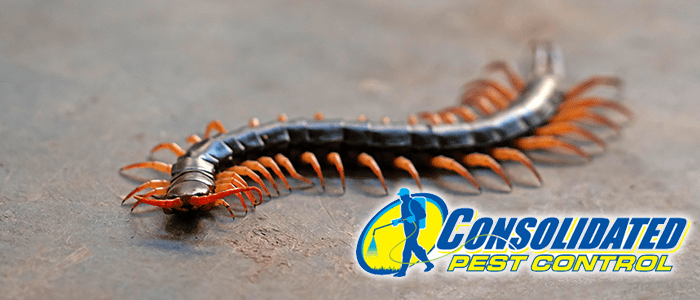
The common centipedes that invade most homes are many-legged insects with a nasty bite that prey on household pests. Despite their usefulness, most have a defensive streak that makes them occasionally bite humans – while not dangerous; it is usually somewhat painful.
These hunting insects are generally solitary predators. They fall into the division of ‘creepy’ pests that many homeowners do not want to share their lives with. Thus, this list will assist in completely negating the chances of ever coming across one of these many-legged marauders late at night, when the last thing you’d like to see is their elongated bodies scuttling into your path.
Causes for Infestation
One of the biggest causes for centipedes to congregate around your home is often the area’s relative moisture. Generally, this means treating the cause by checking the foundations or potential moisture-high zones surrounding the house itself.
Another cause is also prey items being within your home. These insects are predators, miniature lions of the insectile world, and will only be somewhere that there’s a steady stream of other insects for them to hunt. They may, in fact, be a symptom of a more significant problem at hand, so be sure to check and see if you have other insects in the home itself they’re seeking.
Some common prey items of centipedes are things such as:
- Spiders
- Mice
- Roaches
- Crickets
- Moths
- Flies
- Bed Bugs
- Silverfish
All these things are far larger irritations than the centipedes themselves. Contact an exterminator to search your home if you cannot locate their prey, and usually, once the underlying cause has been treated, their presence in your home will often fade away.
Common Places They Hide
Considering their reliance on moisture, you’ll most likely find centipedes nesting in places like your basement, beneath kitchen sinks, your bathroom, anywhere the humidity is high enough to sustain them comfortably.
Dehumidifiers
As stated previously, these insects need moisture to keep their bodies moving. One of the best ways to combat the dampness that these insects thrive in is to use dehumidifiers to pull the moisture from the air. Without high humidity, these creatures will dry out and die.
Tape Traps
Another method is to put tape traps into less-traveled areas of your house to catch the centipedes when they hide, and also, hopefully, whatever they’re hunting to give you a better idea of what drew them to your home in the first place. After a week or so, you should check them for the potential attractors living within your home, and contact one of our specialists to spray for them.
Insecticides
Many stores sell private use insecticides to kill current and prevent future infestations of your home from centipedes. One of the best to use is the powdered variants, which attack their carapace. Apply it liberally around cracks in your foundation, places you think they come from, and other small crevices that could potentially host them. Alternatively, you could also use Diatomaceous Earth, which you can apply around your house. It has some practical effects in dealing with centipede infestations.
Though, insecticides are only a temporary measure. You should still push forward with contracting an exterminator if you’re worried about the continuous application or if they still seem prevalent within a few weeks.
Exterminators
Considering how hardy these creatures are, it’s reasonably likely that you might have a resurgence of them at some point if their species is common in your area. Or, unfortunately, your efforts aren’t quite enough in dealing with them.
When that is the case, go ahead and contact our experts at Consolidated Pest Control. Our well-trained specialists in pest removal are paid to understand the best methods to deal with any and all infestations of common household pests. They’ll be accommodating and likely be capable of finding hiding spots you’ve potentially missed. I cannot stress enough that an exterminator is, while a little costly, often the best way to put your mind at ease in the case that you cannot remove them yourself.








